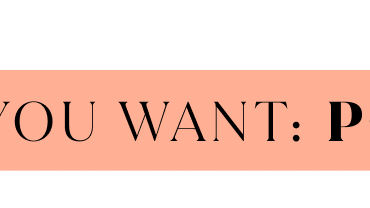This Therapy Is Like a Personal Trainer for Your Mind—and Your Soul

- Oops!Something went wrong.Please try again later.


Ten months into quarantine, the passage of time began to confuse me. Life became smaller, and the graywash routine of it made the hours creep by. At the same time, I felt my “real” life was flashing by somewhere out there, a trail of missed opportunities in its wake. In December, my elderly in-laws died of Covid—one, two, a painful reminder of death’s inevitability. Sitting silently on my sofa, between slugs of warming wine, I pondered in earnest. Was I using my time here well? I had experienced depression before and been gratefully righted by therapy and medication. This was different; this stew felt more existential.
I decided to consult a philosophical counselor. I’d come across the concept during some 2 a.m. doomscrolling. A newish breed of helpers, philosophical counselors may have a master’s or a PhD in philosophy but have stepped out of the lecture hall to use their insights in helping clients work through thorny life issues, such as midlife crises, relationship dilemmas, career crossroads. Some are certified through the American Philosophical Practitioners Association (APPA) or the National Philosophical Counseling Association (NPCA), but because there is no legal regulation of the field, anyone with a philosophy background could call herself a philosophical counselor. Unlike psychotherapists, they don’t diagnose or treat mental health conditions, like clinical depression or panic disorder, or prescribe medication, and most don’t take insurance. Instead, they lead you through sessions to whip your thinking into shape, like personal trainers for the mind and soul.
Having first appeared in the U.S. in the 1990s, philosophical counselors use a variety of approaches. Most engage you in deep conversation, pulling from their training to help you question the logic and assumptions behind your thinking. Some practitioners might suggest you read a little Jean-Paul Sartre or Lao Tzu, or quote tidbits from philosophy’s great minds who, over the millennia, have worried about the same problems troubling you today. If you’re struggling with feeling disconnected from a friend, for example, they may share Aristotle’s views on friendship so you can see your own situation in a different light.
Philosophy has a rep as navel-gazing: It’s seen as a series of rarefied brain teasers about the sound of one hand clapping or the number of angels that fit on the end of a pin. But Skye Cleary, PhD, a lecturer of philosophy at Barnard College and coeditor of How to Live a Good Life: A Guide to Choosing Your Personal Philosophy, begs to differ. “For thousands of years, philosophy—which means ‘love of wisdom’—wasn’t confined to the ivory tower,” she says. “It was happening on the streets.” Socrates and company led pupils through dialogues to coax greater self-understanding. Asking “Why are we here? How should we live?” was not just an intellectual exercise: Epicurus believed philosophy was essentially medicine for the soul, a practice with useful applications for solving the problems of everyday life.
Today, philosophical counseling is still a niche field. But it’s growing steadily, according to Lou Marinoff, PhD, a professor of philosophy at the City College of New York and president of APPA. To find one, you can scroll through the practitioner directories at appa.edu and npcassoc.org. Not surprisingly, “Demand for philosophical counselors, and for APPA training programs, has increased during the pandemic,” he reports.
According to Cleary, that’s because “we tend to go through life on autopilot—busy with work, family, our phones—and we don’t stop and reflect on the big picture until we run into a crisis.” But while crises can be scary, they’re also opportunities for growth. “As adults, we get out of the habit of asking questions,” says Cleary. “But if we stop doing so, we become passive; things happen to us rather than us seizing our own destiny.” Seeking help with my own questions, I met my modern-day Socrates via Zoom. Monica Vilhauer, PhD, is the founder of Curious Soul Philosophy in Portland, Oregon. Half a continent apart, we bonded over the fear our dogs would interrupt—she had bribed hers with a mini jar of peanut butter. Vilhauer asked me background questions much like a therapist would. What was I concerned about? I told her about my quarantine-induced ennui, how I felt stuck in Groundhog Day, fretting I wasn’t making use of my time well. Shakespeare wrote King Lear during the plague, right? Like the rest of the planet, I was missing spending time with friends and faraway family and generally felt unmoored.
She listened attentively, then guided me to question my thinking. Has all this solitude perhaps been a time of opportunity, too? While spending lots of time alone, are there ways to feel connected to something outside yourself? I reflected that long walks by the river had been a pleasure, renewing my appreciation of nature. Come to think of it, I had picked up journaling. Vilhauer shared a few of her experiences, too, giving our session the feel of a conversation. “I love Thoreau’s ideas about the freedoms of solitude,” she offered. “To paraphrase, he said, when you travel by yourself, you can start anytime.”
Thoreau seemed like good company to be in. Maybe I could view my house as my Walden. As I hung up, I felt like a window had been thrown open in my brain and fresh air had entered. Afterward, I kept mulling over the unlikely positives of this difficult year. I’d tried seeing the bright side before, but somehow, knowing that great thinkers endorsed silver linings made it stick.
Unpacking my concerns about my mortality would take additional sessions—and more peanut butter. But not all clients seek out philosophical counselors, Hamlet-style, to ponder life’s big to-be-or-not-to-be questions. Many come for one session to discuss a specific personal problem, such as a decision to move or an ethical conflict.
“A client may say her parents expect her to be a lawyer, but she wants to be an artist,”says Sean Holland, PhD, a philosophical counselor and consultant in New York City. “The expectations of family sit in tension with what she feels, causing her distress. I might ask her to consider, ‘On what grounds do you believe making a lot of money is the measure of success?’ Philosophical counseling is about reaching down and challenging your deepest assumptions.”
With or without philosophical counseling, learning to step back and ask questions can be a powerful tool in difficult times. Diana Wu David, author of Future Proof: Reinventing Work in the Age of Acceleration, did just that when she learned that her mother, who had been suffering from breast cancer for three years, was about to die. “Rather than labeling the experience as devastating—and it was—I committed to being curious about it,” she says. “I thought about the concept of a good death, what role I could play in helping my mother have one, and if I could learn anything that would eventually help me make that passage, too.”
To that end, David and her mother read Atul Gawande’s book Being Mortal together.
“In one of her final days, I brought oranges from the tree in her yard to the hospital for her nurses. Surprisingly, my mother was able to eat one, too,” recalls David. “The smell, the taste, the feel of it. I remember it so vividly. It made me realize how important these small moments are. They are life.”
The experience didn’t just change how David perceived her mother’s death, but how she approaches her own day-to-day existence. “When difficult things happen, we can try to hide them in a dark corner of our minds, or we can look closely and see what we can learn,” she says. “I now bring this attitude to everything. When someone is doing something that bothers me, I step back to say to myself, ‘That’s interesting....’ That pause, combined with curiosity, expands the possibilities of how I can react.”
Ultimately, philosophy helps you ask the right questions, but it doesn't supply easy answers. “There’s no secret answer key,”says Vilhauer. Still, the act of questioning helps you consider new perspectives. Cleary told me Simone de Beauvoir believed we are never fully formed, but a series of evolving selves. That may be a philosophical truth, but it’s also a practical reminder that we’re all works in progress—and that life is a series of new possibilities.
Jennifer King Lindley is the author of Find Your Joy: A Powerful Self-Care Journal to Help You Thrive.
In an illuminating conversation with Oprah, Oprah Daily Insiders, and organizational psychologist Adam Grant, we explore how to tap your potential and achieve greatness at any age. Become an Oprah Daily Insider now to access this conversation and the full “The Life You Want” Class library.
You Might Also Like

